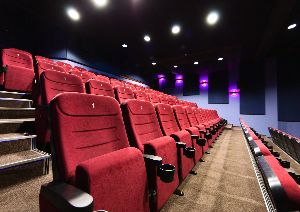3 Factors to Consider When Designing an Auditorium

If you’ve ever attended a show, lecture, or another event in an auditorium and struggled to hear what the speakers were saying, poor acoustics are likely to blame. The design of a room’s auditory capabilities is just as important as its layout if you're using it to host large events. Keep the following design tips in mind as you prepare to add an auditorium to your office building, community center, or similar space.
What You Should Know About Auditorium Acoustics
1. Build Away from Noisy Areas
Even the best-designed auditoriums can’t block out ambient noise from nearby roads, train tracks, aircraft, or neighboring industrial or commercial sites. If possible, choose a site for your auditorium with plenty of distance between it and sources of noise nearby. It may be necessary to equip the space with double- or triple-paned windows or soundproofing materials like mineral wool insulation to filter out excess noise.
2. Install Sound-Absorbing Materials

Many auditoriums have persistent problems with excessive reverberation, the tendency for sound waves to bounce off of solid surfaces, and obscure speech and distinct sounds on stage. For larger spaces, moderate reverberation is a benefit, as it can help audience members in higher balconies or back rows clearly distinguish sounds.
In some general-purpose auditoriums, there may not be enough room to allow sound waves to fade away in time for audience members to hear the following sounds. For these spaces, installing sound-absorbing materials like upholstered chairs and benches and fabric panels. It may also help to install damping compounds, materials that convert sound energy into heat, or decoupling, physical features that separate vibrations and limit the spread of sound waves.
3. Determine How Your Auditorium Will Be Used
Although they may all look similar, not all auditoriums are suitable for the same uses. Theaters, for example, are designed to complement dramatic speech and music, whereas assembly halls are typically intended to carry normal speech. Because the intended use of your space will determine its acoustic features, decide which purposes it's most likely to be used for and consult with an acoustics engineer to learn how best to accommodate those uses.
When you’re ready to start planning the auditorium's setup, the acoustics experts at Claiborne Sharp Professional Audio are here to provide the audio and video equipment you need to make it complete. Serving businesses, churches, schools, and community organizations within a 100-mile radius of Shreveport, LA, these acoustics specialists are certified by the Louisiana State Board of Contractors and offer a full range of top-quality equipment to help sound travel clearly throughout your auditorium. Call (318) 861-5953 to schedule a consultation, and visit their website to learn more about their services.
About the Business
Have a question? Ask the experts!
Send your question

